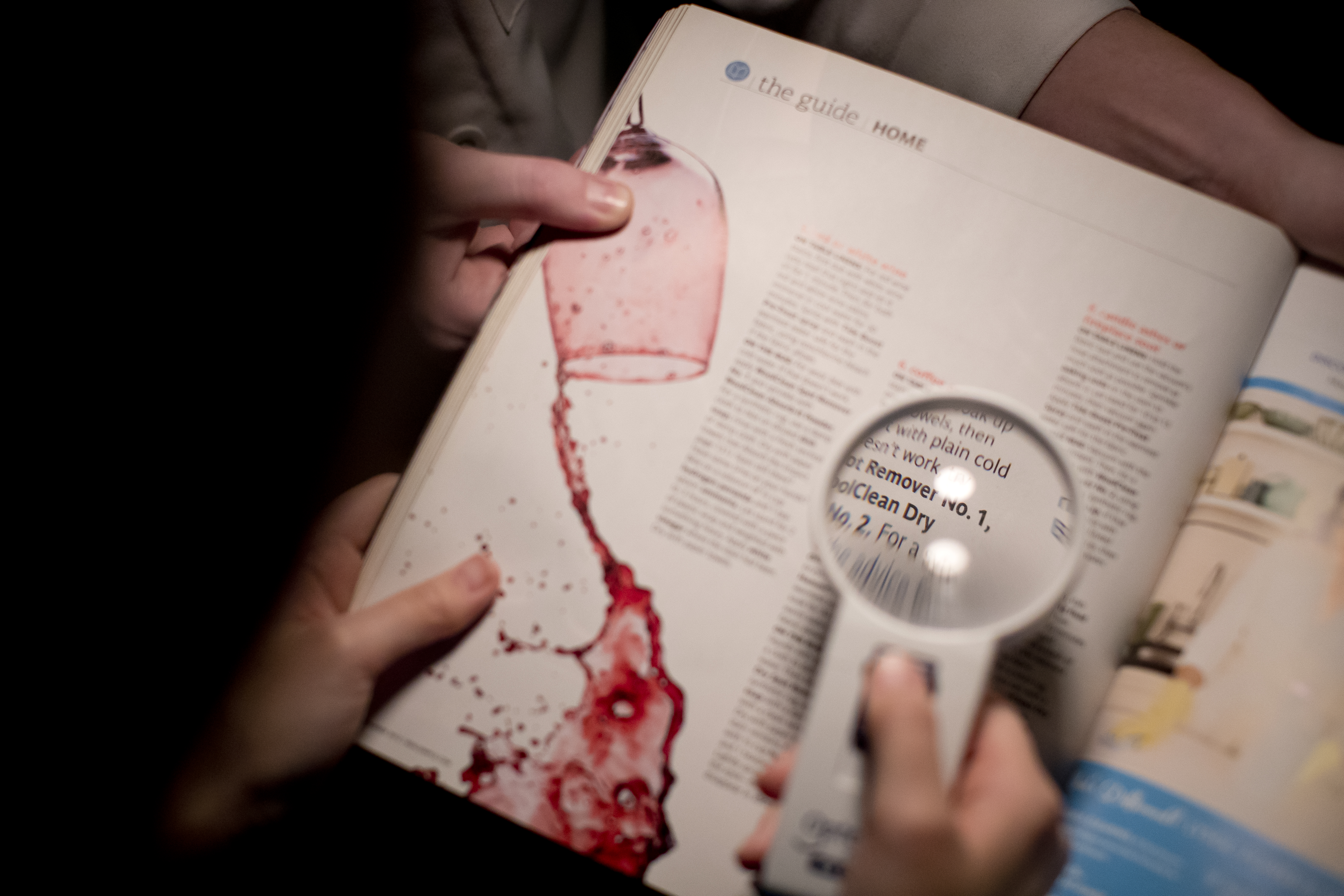Low Vision Doesn’t Mean Laying Low
 February is Low Vision Awareness Month. Low vision is a visual impairment that cannot be corrected by standard eyeglasses, contact lenses, medication, or surgery and can potentially make every day activities hard to do.
February is Low Vision Awareness Month. Low vision is a visual impairment that cannot be corrected by standard eyeglasses, contact lenses, medication, or surgery and can potentially make every day activities hard to do.
Vision loss can also take a toll on one’s mental state leaving them feel anxious, helpless, or depressed if they don’t seek professional help from a rehabilitative service.
Vision rehabilitation can help those with vision loss to maximize their remaining vision and in maintaining their independence and quality of life through such services provided at the William Feinbloom Rehabilitation Center, which is housed at The Eye Institute (TEI) in Oak Lane.
Together, the Feinbloom team - made up of optometrists, social workers, and certified low vision therapists - develops low vision strategies that provide assistance to patients with visual impairments to achieve daily goals and tasks such as reading, identifying street signs, in addition to managing household and job-related tasks.
For patient Barbara Nachbar, the services at Feinbloom have helped her to continue to play her card games. “I purchased a lamp that they recommended and now I can play Bridge better than I could before,” she said.
Nachbar has been a patient at the Feinbloom Center and Dr. Erin Kenny specifically for awhile, though she can’t remember exactly how long it’s been, but knows that each time the team is “so lovely, caring and patient, and that can really matter.”
While she doesn’t expect the impossible in regards to a perfect treatment for her low vision, she has confidence in the care she is receiving and that all possibilities have been exploring in the best methods to help her maintain a certain level of independence and increased quality of life.
Recently, one of the Feinbloom Center’s low vision and Orientation and Mobility (O&M) specialists, who is also director of Salus University’s O&M Program, discussed the basics of O&M through the "Health Science Starts Here" podcast series.
O&M instruction helps individuals with visual impairments build skills they need for independent travel. O&M instructs how to use remaining senses such as hearing and sense of touch, and remaining functional vision. It also includes concept development, orientation skills, problem solving skills, and mobility skills and techniques perhaps with a long cane, or supporting the use of travel with a dog-guide or electronic travel aides.
“As the world is our classroom, we work within whatever environment our student [or patient] needs to navigate and as technology improves, we have to respond to those changes within the environments and how they’re placed,” Maffit said.
If you or someone you know lives with low vision and is in need of vision rehabilitation services, please contact TEI to make an appointment.
Services provided by the Feinbloom Center include:
- Comprehensive low vision evaluations for adults and children
- Prescription and dispensing of low vision devices and adaptive equipment
- Rehabilitative training in the use of remaining vision
- Adaptive technology evaluations
- Referral to agencies that offer assistance in obtaining adaptive equipment and rehabilitative services